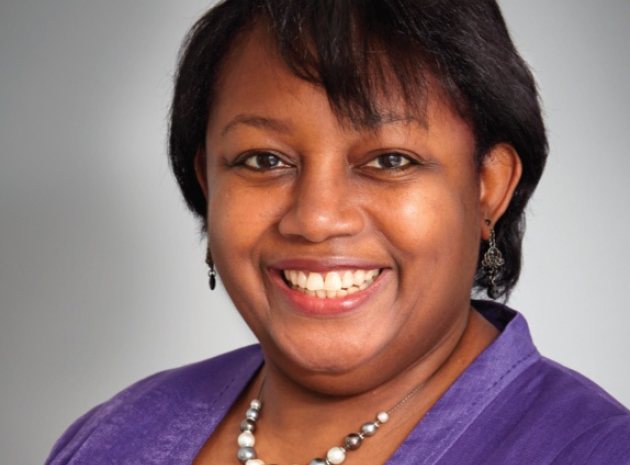I spent my secondary years at Honor Oak Grammar School in London, and I enjoyed my time there, on the whole.
We had brilliant music facilities, and our own science block – which was unusual for an all-girls school at that time. We were offered a remarkably broad-based education, and I’m grateful for that; as well as English and maths, we all had to take at least one science and a language at O level. I liked the way this kept our options open, and our interests varied, until the time came to specialise at A level; because despite recent government rhetoric, I think we need both the sciences and the arts in life – as individuals, and as a society.
I was very much an average student – certainly no high-flyer. I was quite good at maths when I arrived at the school, and enjoyed it; but during our first year we had to take a test, and because I couldn’t find my ordinary pencil, I wrote using a brown, colouring one. I got 92%, but the teacher held up my work and asked the whole class what was wrong with it. Eventually I put my hand up, and said ‘I used the wrong pencil.’ She flung the test back at me with a curt, ‘Don’t do it again’. No mention of my score. The good teachers at that school were brilliant, but some definitely favoured humiliation as a teaching method, and she was one of them. After that, I never really regained my passion for the subject.
I always got on well with my English teachers, but the one who had the biggest influence on me was Miss Brace, who taught us at A level. She told us frankly that she ‘hated children… but loved English’; she treated us like adults, which really helped to bring the subject to life. I remember once, we were reading Troilus and Cressida and she paused, looked up from the book, and announced, ‘You know, I’m sure Shakespeare must have had a dose of the clap when he wrote this. It’s so misogynistic!’ We were all shocked, of course – but thinking about it later, I realised that for the first time, I was imagining an ‘iconic’ writer as a real person; a man, who put his trousers on one leg at a time like everyone else.
When we had to apply for courses after sixth form, I had it all planned out – I would go to Goldsmiths, and become a primary school teacher; something I’d wanted to do from the age of eight or nine. But when I explained this to my careers teacher, she told me bluntly that ‘black people don’t become teachers’, and refused to write my university reference. In fact, she insisted that there was no way I would even pass my English A level, and recommended a business studies course at the poly. I knew it was a mistake even before I started, and when I was rushed to hospital to have my appendix out halfway through the first term, I used my recuperation time to rethink. I applied to Goldsmiths by myself, and was offered a place. However, I deferred entry for a year, during which time I started working at a software house, got hooked on computers, and stayed in that world for nine years.
It seems shocking now, but that careers teacher actually taught me a powerful lesson; about resilience, and determination, and self-belief. I never did go to Goldsmiths – in the end, though, it was my choice, not imposed on me. When I realised that I wanted to be a writer, it took over two years, eight or nine books, and 82 rejection letters before a publisher finally said yes; I just refused to give up. People in life will always say that you ‘can’t’ do this or that, but if someone stands in your way, you need to find a way round them, not waste time arguing or worse still let them stop you.
It’s the same with Project Remix, which I’ve launched as part of my role as Children’s Laureate. I knew I wanted to reach out to teenagers who may not read for pleasure – so we’ve put together a list of brilliant books covering a range of genres and including authors like Jane Austen, Holly Smale, Bram Stoker and Benjamin Zephaniah, and are inviting young people to make something of their own, inspired by one of the titles.
It might be a music track, a comic strip or a filmed trailer – the idea is that they can use great, established works to find their own voice.
A few individuals have said that we shouldn’t encourage kids to ‘mess with the classics’ – but this is a process that has been going on for as long as human beings have been creative. Shakespeare took stories and made them his own; George Bernard Shaw took the myth of Pygmalion and Galatea and turned it into Pygmalion, which was then remixed into the musical My Fair Lady… you’d be hard pressed, I think, to find a writer who didn’t become one from a love of reading, or a musician who never listened to anyone else’s music!
So we’re not listening to the nay-sayers, and personally, I can’t wait for those young people to show the critics who want to say, ‘you can’t’, exactly what they can do…
About the Author
Malorie Blackman OBE is an award-winning author, who currently holds the position of Children’s Laureate for 2013 – 2015. As part of this role, she has launched Project Remix – an exciting competition encouraging young people to respond to a selection of acclaimed literature in innovative and creative ways. Find out more at www.projectremix.co.uk, delivered by Booktrust in partnership with Movellas.com and Penguin Random House.










